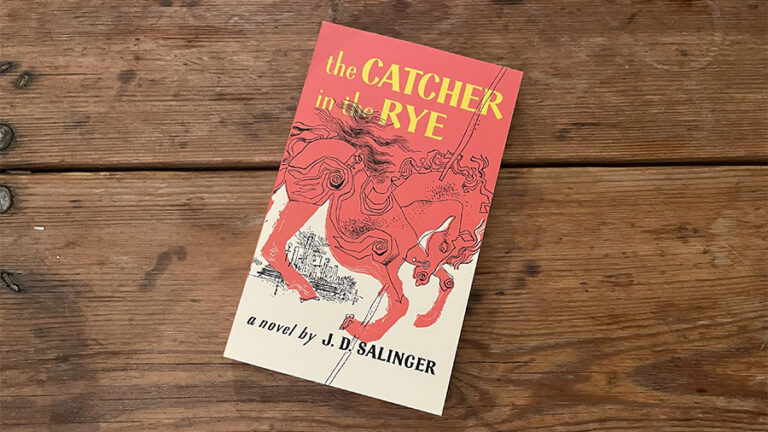“The Catcher in the Rye” is a classic book that is a part of some countries reading curriculum. But not in Sweden, which is one reason I’m reading it now, when I’m close to my 40’s, and not in my late teens. The books is by J.D. Salinger and the novel was first published in the early 50:s and has been a bestseller ever since. It has sold over 65 million and it holds a slot in many prestigious “best book of all times” – lists. Including Modern Library’s and New York Time’s top lists.
After reading the book I can see why it would be in a school reading curriculum. It’s a book that touches upon many themes that concern the young and I can see it sparking big discussions in a class of teenagers.
Holden Caulfield: A Relatable Portrait
The protagonist of The Catcher in the Rye is Holden Caulfield. A 17 year old boy who is failing in school. Failing in most things, actually. At least according to the expectations that society has on a person of that age. He knows what expected of him but he just can’t muster up the energy to apply himself. He has no intrinsic motivation for succeeding in school or work. He can’t see the point of it. The world of adulthood is “phoony” and it makes him sick. He rather run away and live in a cabin in the middle of nowhere than to take part in civilized society.
Themes of Alienation and Identity
In the book we get to follow Holden for about a week and get a deep look into the workings of his mind, as he chronicles his own experiences at school, in social situations. He struggles with a society that he views as hypocritical and artificial. He also struggles with finding a sense of selfhood and identity in a world full of “phonies”.
A Touching Exploration of Existentialism
One question that arises when reading this novel is whether Holden is clinically depressed. While that remains uncertain, what is evident is his profound alienation from the world. “The Catcher in the Rye” presents an authentic portrayal of existential crisis, resonating with readers from diverse backgrounds.
Video Review: Catcher in the Rye
Book Verdict:
Before we get into the verdict for this book I would like to mention why I read, since it’s consciously or unconsciously impacts what books I recommend people. I read this book as a part of my life goal of reading the classic works of literature. I read to learn from other peoples experiences about what work, what doesn’t, and what common traps to avoid in order to live the good life. I read to understand other people better, as well as to understand myself. I firmly believe that reading great books, and being childishly curious, have the power to improve people’s lives.
This book is quite slow, and the protagonist outlook on life– how he describes everything as boring or phony– makes me as depressed as Holden himself. I recognize my younger self in his alienation and confusion. That said, if you’re like me, and your primary mission is to study human nature and human potential, then your time I better spent elsewhere.
Recommended Alternatives to Catcher in the Rye
If “The Catcher in the Rye” didn’t fully resonate with you, I recommend exploring other books that delve into similar themes and offer profound insights. Consider these three great alternatives:
- “Notes from Underground” by Fyodor Dostoevsky:
This thought-provoking novel, narrated by an unlikable character, delves into psychological insights that surpass those of psychiatrists. It serves as a captivating exploration of human nature. Read my review of Notes from Underground. - “Siddhartha” by Hermann Hesse:
Set in Ancient India, this classic novel follows Siddhartha’s spiritual journey and search for self-discovery. It explores themes of enlightenment and the pursuit of truth. - “Ishmael” by Daniel Quinn:
A philosophical novel that examines humanity’s relationship with the natural world and critiques civilization. The Socratic dialogue between a student and a wise gorilla invites contemplation of existential questions. Read my review of Ishmael.
⭐️ ⭐️ ⭐️ out of 5
Find more great books to read on my the Great Books List
Video Reviews every week on YouTube and support the BookLab mission on Patreon




